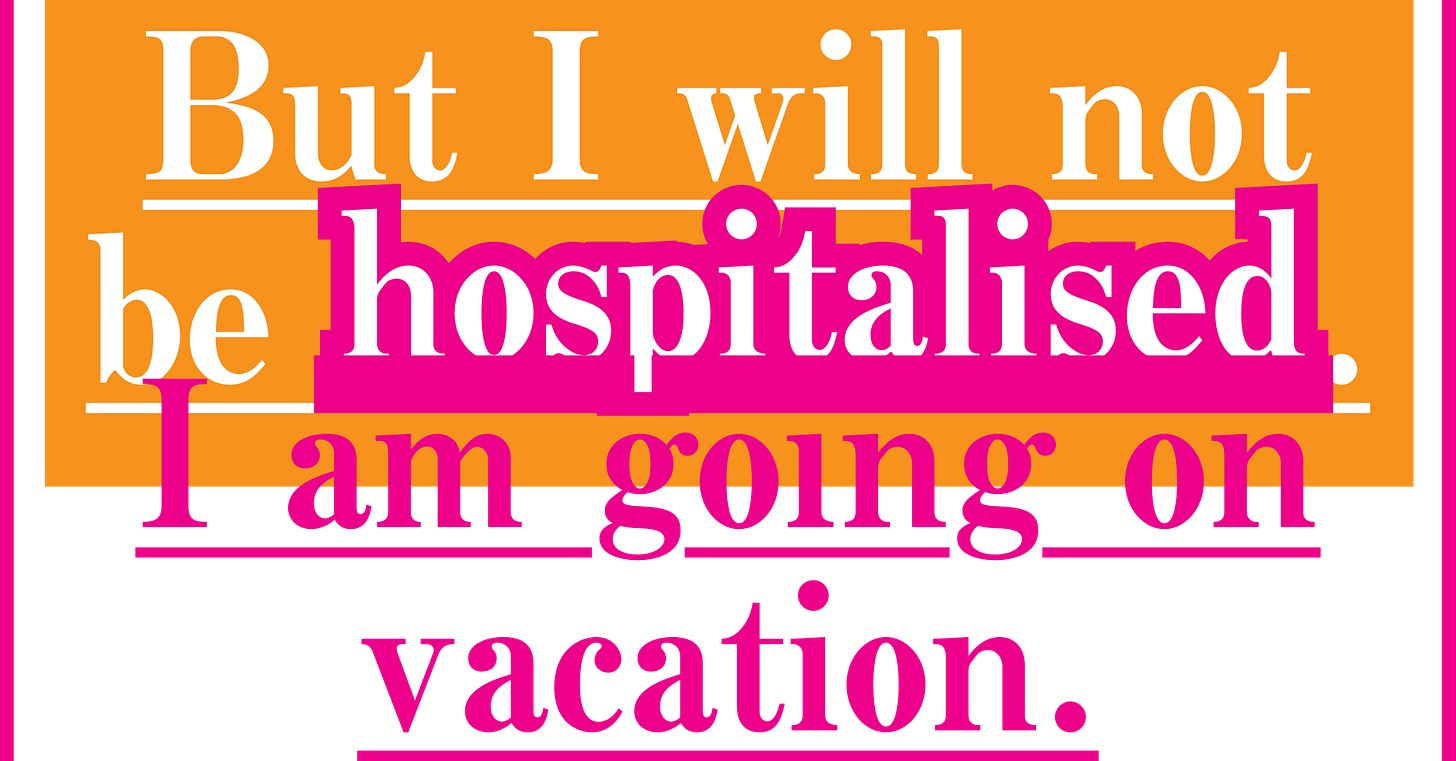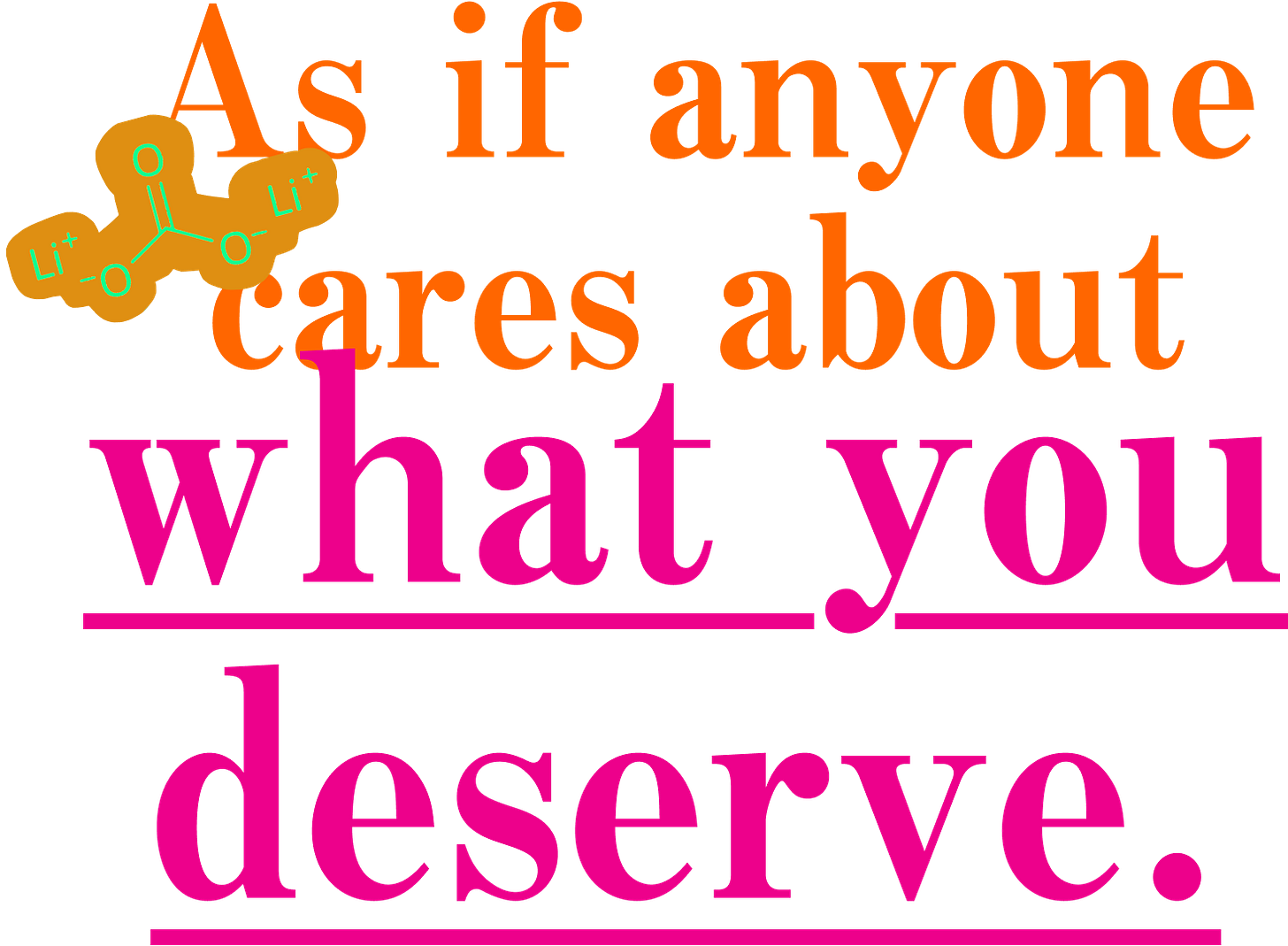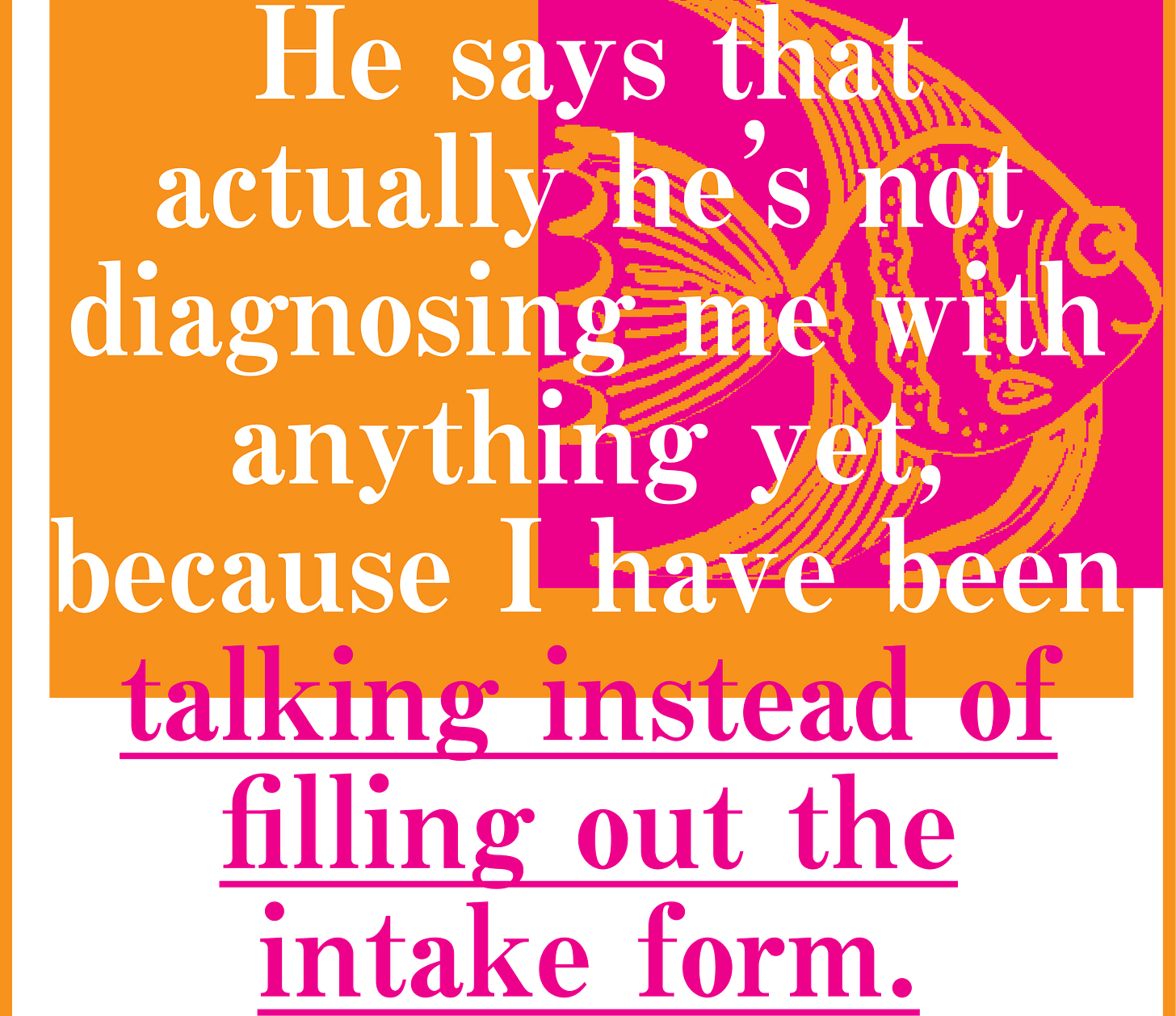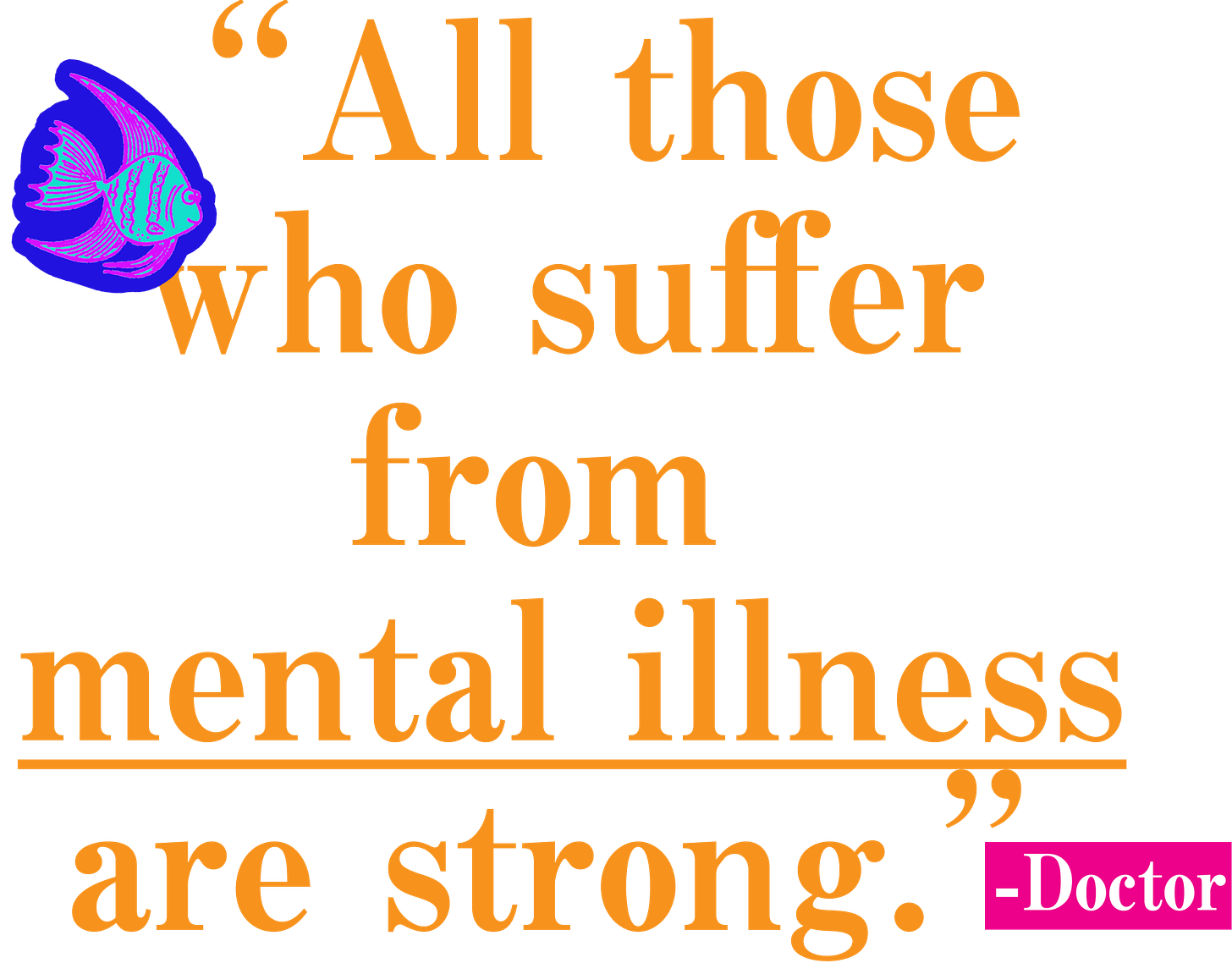My Vacation
(to the Psych Ward)
The below essay is from i-D’s “CONFESSIONAL” zine, created in collaboration with Substack. The limited-edition print product is available free of charge and features ten never-before-told confessions by Substack creators. Just like this one.
The Zine is already sold out online, but is available for free for a limited time at the stockists below.
Casa Magazines (New York)
Iconic Magazines (New York)
Hotel Chelsea (New York)
The Ludlow Hotel (New York)
Architecture Books (Los Angeles)
A week before I went on the girls’ trip that was supposed to change my life, I was talking to everyone at the party about killing myself. I don’t drink—at this party, whenever someone asked me why I wasn’t drinking, I said, as I often do, “It’s complicated”—but I kept spilling my drink on strangers, gesticulating wildly, tap water sloshing over the sides of my plastic cup onto the shirt sleeve of another writer/academic/editor/publisher whose name I couldn’t remember. “Oh, fuck, sorry—I’m not drunk—I actually don’t drink—it’s complicated—sorry, I haven’t been out of the house in a while, I’ve been thinking about killing myself, ha ha ha.” They loved it. They wanted to have sex with me. I was thinking that everyone at the party was wanting to have sex with me, which was a problem for them on account of the killing myself thing.
Here are some other things I said at the party to the many people who wanted to have sex with me: I’m skipping therapy so often that my therapist has finally told me I’m wasting her time. I tried to break up with my boyfriend over the phone. A few of my closest friends and family have begun to suggest—gently, lovingly—that I be hospitalised.
I arrive at the hostel in Mexico a few hours before my friends, in a coastal town where the sidewalks are lined with colourful tile and the street dogs nap in the shade of the avocado trees, and a burst sewage pipe is pumping a geyser of liquefied shit into the ocean. No worries: this is a girls’ trip, and I know that it must be about to shift my perspective and renew my lust for life. The food is really good and very cheap, and someone is always pulling out a currency converter and saying, “Can you believe how cheap this is? You could never get food this good and cheap at home.” Then everyone gets quiet for a second while we try and figure out if it’s ethically permissible to feel good about that kind of thing—and, only sometimes, because some of the food in the tourist towns is really just okay, and after the calculation we realise it’s pretty much the same price as the stuff in Toronto. The hot front desk girl at the hostel gives me a free beer and instead of saying it’s complicated I just give it to the Québécois woman bunking next to me, who in return warns me that the liquefied shit in the ocean has made its way into the food supply. It’s okay, because it is so beautiful here that you don’t need to eat. My friends and I shop for pre-packaged non-perishables, go out dancing and share beds, watch TV in Spanish, and fall asleep holding hands.
There is a classic line that I know I’m supposed to be thinking. It goes something like:
wow, I’m a young woman in the prime of my life, in the most beautiful place in the world, surrounded by strong, independent women who love me wholly and completely, I am cradled in a nexus of platonic love, I can see the ocean from my hostel, and my sunburn is fading into a tan—I am healed!
There’s a real appeal to these stock thoughts, the slim-fit narratives you can try on like someone else’s clothes. I can feel the magnetic pull of a good story laid out for me, a story about growth and empowerment and womanhood, and Ashtanga yoga. But I can’t make it work; the clothes don’t fit. I follow my friends three hours uphill to a hidden waterfall and think about my fucked-up relationship. I look up at a lush, mountainous jungle and think about what it would take to die, the logistics. I can feel a school of small, tiny fish push up against my body as I float face down in the Pacific Ocean, I can open my eyes underwater and see the sun arcing in God’s fingers down to the ocean floor. People I love keep getting sick and dying. I can feel the skin on my back cooking in the sun, but I can’t stop looking down.
There is a classic line that I know I’m supposed to be thinking. It goes something like: wow, I’m surrounded by all this beauty and privilege, and I’m still miserable—what’s wrong with me? But I don’t like this one, either. You hear it a lot in the halls of nice universities and on the walks home from third dates, from boys with straight teeth and girls with parents who work too much in the rich way, wringing their hands, tortured by their sadness as if happiness is a default and misery is something you have to earn. As if beauty and privilege ever stood in opposition to misery anyway.
After I get back from vacation I am made to go to the hospital. My therapist tells me that the doctors might put me on lithium, which I thought was either made up or only existed for vacant housewives in the 1950s, but it turns out that it is real and it can also be for girls who think that everyone at their work party was trying to have sex with them. I ask the doctor if thinking that everyone wanted to have sex with me would still be considered a potential symptom of a delusional psychotic disorder if I were prettier. I say, “To be clear, I know I wasn’t ‘interfacing with reality’ at the work party, but I just think it’s interesting that no one even considered for a second that maybe everyone actually DID want to. I just mean, by diagnosing my sanity in this case you are also implicitly making a harsh and underinformed judgement on my sexual magnetism, and you should at least get to see me in action before you diagnose me with bipolar disorder or something, because many people actually find me quite charming, so it might not be so crazy after all.”
My doctor asks me what my job is, and I say that I’m a writer, and I get ready to obfuscate the fact that I write about my own life, because I suddenly feel the presence of a strange, pressing worry that he’ll think I’m only at the hospital to write about it. But he doesn’t ask about it at all, which sort of makes me wish he would.
The chairs in the psych ward are weighted so that it’s harder to pick them up and use them as a weapon. I think, if I were really strong, these weighted chairs would be an even deadlier weapon than normal chairs. I say to the doctor, “Do you ever worry that you’re going to get someone in here that’s really strong?” And he looks at me and says, “All those who suffer from mental illness are strong.”
In the end, he tells me that he doesn’t think I have bipolar disorder. I say, “That’s good, really, and I didn’t want to be here and I didn’t want the lithium, but can you just tell me why I did all that stuff, then, and why I’ve always done stuff like that, why it never changes, why I always feel like this?” And he says, it’s possible that this is just what your personality is like, because it’s his turn to be cute, I guess. But then he pauses, and he looks suddenly like a person instead of a doctor, like he’s telling me something sad and secret, a negative prognosis, maybe—and he says, “We don’t always… you know. There’s not always a perfect story to tell about all of it.”
He gives me a few prescriptions for non-lithium pills and a list of targeted therapeutic treatment plans, which I lose immediately. I take a picture with my hospital bracelet and I tell myself for a while that I won’t tell a story about it, but that too, of course, was a story, which—like love, sex, or going on vacation—is a structure in which the truth must be betrayed again and again in the slouch towards something like meaning.
Rayne Fisher-Quann is a writer from Toronto who writes a blog called Internet Princess. Her first book, a collection of essays titled Complex Female Character, is forthcoming from Knopf.












Everyone at the party definitely wanted to have sex with you
I really liked the author’s note